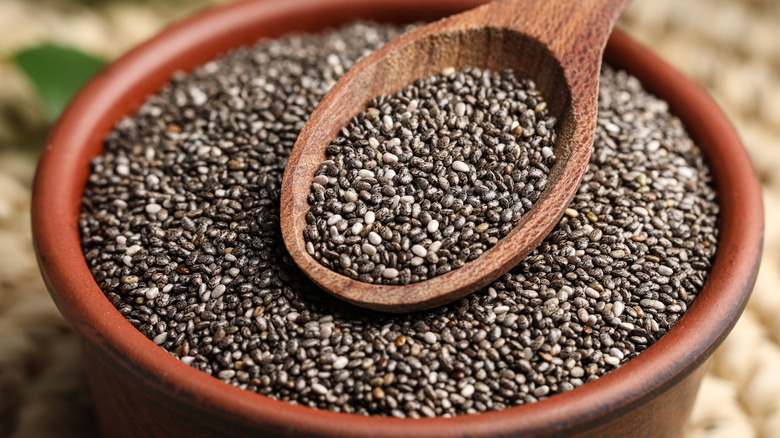How To Get Through The Workday Without Caffeine
Coffee, tea, soda, energy drinks: A lot of us reach for caffeine to get through the workday. This has become even easier for those working from home during the COVID-19 pandemic, where they can brew more coffee or grab a new can of Coca-Cola virtually any time they want. However, it isn't the best for us, and if you're seeing signs that you're drinking too much caffeine, you may want to cut back and learn the best ways to get through the workday without it (or with less, at least).
When you give up caffeine, your body can experience several withdrawal symptoms, and they'll likely be worse depending on how much you're used to consuming in a day. According to Healthline, some of the most common symptoms include headaches, fatigue, and anxiety, but the good news is that caffeine withdrawal is typically one of the quickest substance withdrawals. This means you'll be back to your normal self in no time. Of course, weaning yourself off caffeine, or transitioning to a lower daily intake, can help the withdrawal symptoms. Quitting cold turkey will give you the harshest ones.
There are many reasons you should limit caffeine, including better sleep and less chances at upsetting your stomach, per the U.S. Food and Drug Administration, but you may be left wondering how you'll get through the workday without it. Here are some tips.
Food, water, sleep, and exercise are all crucial when quitting caffeine
Getting through the workday without caffeine seems impossible, but it's doable if you plan ahead and work on living a more sustainable lifestyle for your body. Remember: Some people don't consume any caffeine, and they're flourishing! Caffeine naturally affects your sleep, so if you reduce your caffeine intake, or cut it completely, you'll likely sleep better, which leads to increased energy. That's already a win.
According to WebMD, you should also drink plenty of water. Most people don't drink enough, but water runs our body and keeps everything operating, so staying hydrated wakes you up and keeps you awake. Listen to your body — if you need a nap at some point in the day, take one if you're able. Listening to your body is better than consuming substances to override what it's telling you.
Northwestern Medicine recommends eating a snack first thing in the morning to wake you up. Low sugar index snacks will keep you running longer. Eating often is also important. If you go eight hours without a meal, your body won't have fuel to energize you. Northwestern Medicine also recommends getting a little exercise in, even if it's just a quick walk. Any form of movement is good, and exercise not only perks you up, but also helps you sleep better. When all of this is combined, you'll naturally have added energy throughout the day.
Finally, Best Life Online recommends eating lots of protein and foods that provide a boost of energy, like chia seeds, and maintaining a specific sleep schedule. This helps balance your circadian rhythm.

